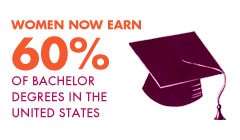
October 26, 2012 | Education, Health and Well-Being, Innovation, Economic Opportunity
Social Enterprise: Empowerment through Economic Opportunities
By Connie K. Duckworth, Founder/CEO, ARZU, Inc.
Post global financial meltdown, sentiment toward philanthropy has experienced a shift. Donors, like all consumers, are now spending less, more carefully weighing where to put their dollars and expecting greater value for their money. They are also rightly asking questions about “sustainability,” or the likelihood that an organization has the financial capacity to continue its mission after they stop funding it.
Over the past decade, the new field of social entrepreneurship has emerged to tackle big global problems, like poverty alleviation, that remain stubbornly immune to traditional charity approaches and public sector intervention. “Social business enterprise” means different things to different people. It encompasses a spectrum of organizational structures ranging from 501(c)(3) not-for-profits to for-profit corporations which direct all or part of their profits toward charitable endeavors (think Newman’s Own or Toms Shoes).
ARZU, the organization I founded in 2004, is creating a new economic model for sustainable community development by empowering women at the bottom of the pyramid through jobs. We are proving out this model in arguably one of the world’s most difficult venues–rural Afghanistan. If successful there, we believe our approach to poverty alleviation is replicable anywhere in the world.
ARZU’s mission is to empower Afghan women and girls as the key agents of peace, reconciliation, development, economic growth and stability. As a social business, profits create the means to drive transformational change for destitute Afghan women, families and communities, rather than benefiting shareholders or investors. From our starting point of only 30 weavers, ARZU now employs 1,000 Afghans—95% are women; 98% live in grossly underserved rural areas; and 20% are widows, a particularly vulnerable population in Afghanistan.
Our financial objective is to become 100% self-sustaining through sales of two flagship products: ARZU STUDIO HOPE rugs and Peace Cord® bracelets. We want sales revenues sufficient to cover all production and social programs costs. In other words, profits from the sale of our “products with purpose” sold to conscious consumers in developed countries equate to the sustained empowerment of women in Afghanistan. Social business enterprise is the mechanism to create a closed-system of permanent funding to enable this empowerment.
But, for truly sustainable poverty alleviation, particularly in conflict zones like Afghanistan, an ecosystem that includes training, literacy and basic health services is essential to seed long-term transformational change. To this end, ARZU provides direct social benefits to over 4,000 beneficiaries and impacts the lives of tens of thousands of other villagers due to the ripple effect of broad-based community development projects, such as women community centers, water filtration systems and healthcare training.
Central to the ARZU approach is our Social Contract with weaver families. ARZU weavers receive fair labor wages and bonus payments. But, in order to register with ARZU, families must agree to send all of their children under age 15 to school full-time, to release women in the household for literacy classes and to permit pregnant women to receive basic maternal care. We closely follow the progress of ARZU families to understand how this holistic intervention impacts their lives. A job puts food on the table and meets basic needs today; education is an investment in the future; and decent health enables both.
“I have found new style of living as I am educated. I cannot say what a nice feeling I have to read books and find out more about the world. I can be aware of all the events happening in the country by reading the newspapers.” -Razia, 49, ARZU student for three years.
Simple interventions, like transporting pregnant women to clinics for pre- and post-natal care and taking newborns for immunizations, save lives. Afghanistan has the second highest maternal death rate in the world. Yet, ARZU has not lost a mother in childbirth since starting this basic maternal healthcare program.
“ARZU takes our women to the clinics; otherwise, our men do not like doctors and never take the women to see the doctors.” –Aughul Khan, 37, ARZU weaver since 2007
From the outset, ARZU, which means hope in Dari, has taken a culturally sensitive approach to prioritize and develop social programs, based on local input. Our all-local Afghan team makes this kind of communication and dialogue possible. This patient approach allows us to build trusted relationships with all local constituencies— the women, their families, the village shuras, provincial leaders, and the broader community.
Social business enables direct transformational change in the lives of women in the “world’s worst place to be a woman” (Thompson Reuters Foundation 2011). It all starts with a job, a product with purpose and a conscious consumer.